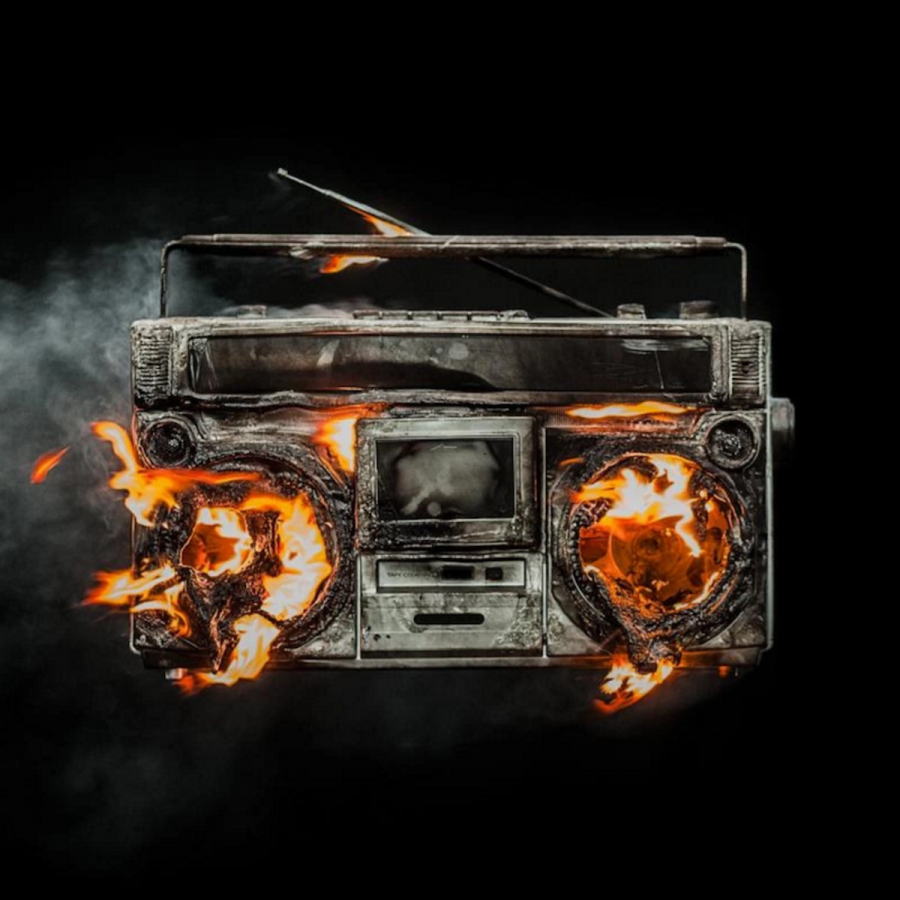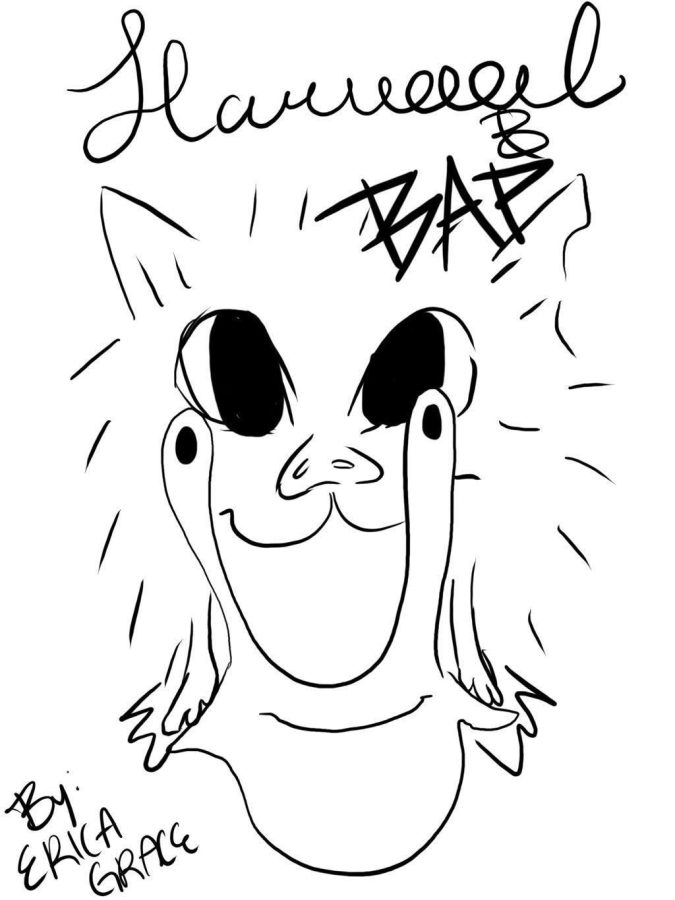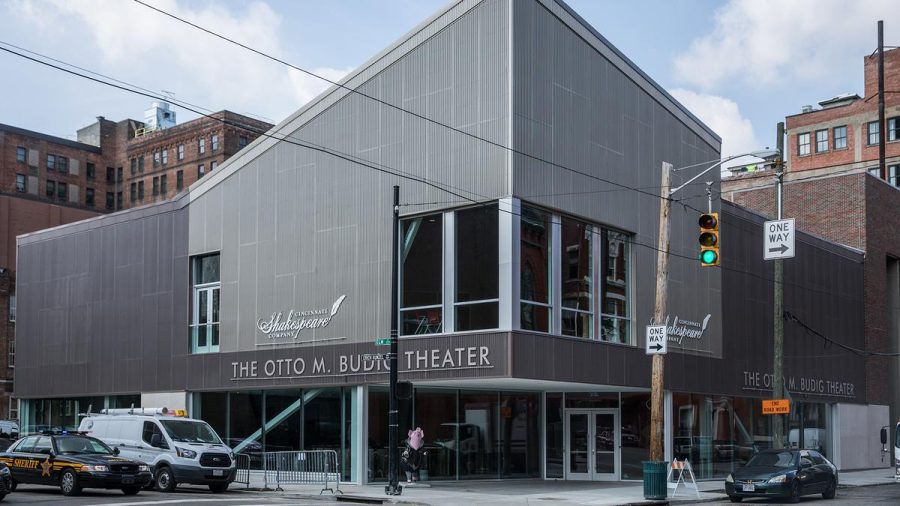By Liz Keller ’17, Arts and Entertainment Editor
On Friday, October 7th, Green Day released an album to save punk rock, United States politics, and perhaps even the world. Revolution Radio is not the first of Green Day’s albums to touch on political issues. I’m sure that all of you have heard at least one song from one of Green Day’s most famous albums, American Idiot. The album-turned-Broadway-musical-soon-to-be-movie came out in 2004 and touched on political and societal issues. The title track was based off of then-president George W. Bush who was running for reelection that year, and a song from the musical, Favorite Son, featured on the album “Rock Against Bush Vol.2”, which encouraged punk fans to register to vote and to vote against Bush. Whatever you do, don’t call this album pop punk– Billie Joe Armstrong hates the term and is dead set on destroying the genre this year.
The first song on the album, Somewhere Now, starts out with some acoustic guitar that is reminiscent of Good Riddance (Time Of Your Life). The song talks about the medication of people who are considered out of the norm so that they will fit in with society. It also discusses the importance of voting, and reminds Americans that yes, we are still at war in the Middle East, no matter what the government tells us. It lays out themes for the album and lays out the dangers of capitalism and violence, with the lyric “All we want is money and guns”. The track features a long instrumental part which is reminiscent of the American Idiot album, yet a sound all its own. It is a great track to start out the album and introduces it, just like the opening paragraph to an essay, yet far more entertaining.
The next song, Bang Bang, was the first single on the album and kicks things up a notch, bringing a lot of energy, but also more seriousness. One of the main themes of this song is terrorism, and another is the price of fame and how useless the famous feel. Unlike other songs complaining about fame, this one highlights the attempts and desires of the famous to do something to help society, yet their inability to actually do so. According to the song, to be famous you have to force yourself to be something you’re not, and practically destroy yourself to be paid attention to. The song features a great drum solo from drummer Tré Cool and spoken vocals from bassist Mike Dirnt which add a lot to the song’s meaning. The music video is sort of ridiculous but demonstrates how quickly people believe everything they see in the media without investigating it themselves first. The lyric “Viva La Verdad” helps to emphasize this point.
The album’s title track, Revolution Radio, is upbeat with a toe-tapping rhythm but shares the darker themes of the rest of the album. Once again, there is a call to “legalize the truth”, which rings true in a country where our government often lies to us. The song epitomizes the album, calling for a radio to spread the truth to the people. Specifically, this song deals with police putting down protest (“like there’s teargas in the crowd”), poverty (“rise of the slums to the obsolete”), and the societal standards that make us into someone we don’t want to be (“debutantes in surgery”). Musically, it isn’t very complex but it’s still a great song.
Adding just a touch of creepy to the album is Say Goodbye. Beginning with a repeated, ominous call to “say goodbye to the ones that we love”, you get a feeling that all is not well, which is mirrored in the current state of our country. The song discusses both the violence of the cities and the danger for African Americans from the “cops on patrol” who are the “ones in control”. The contrast of saying goodbye to loved ones with saying hello to cops states the undeniable fact that the cops are the ones that will take away your loved ones. The repetitiveness and simplicity of the song is reminiscent of the chants kids used to sing in the schoolyard at recess, making the song even creepier.
Outlaws is a bit of a slower song that starts solely with bass and touches of piano. It touches on the ‘rebellious’ teenage years where kids question their parents and society. The song is very much about the joy of youth, and highlights that doing what you want without parents breathing down your neck is such an important freedom as you grow up and prepare to enter college, and the world. A slow change of pace from the first part of the album, “Outlaws” is a rebel’s ballad. However, the last verse talks about the end of this freedom, the loss of a partner and the “knife by the railroad tracks” which seems to lead to a darker end for the remaining Outlaw.
Bouncing Off The Wall breaks the spell of tranquility that “Outlaw” had cast on the listener. It’s a high-energy song about life in the city. You can’t help but move to the drumbeat on this song. This is definitely a song that leads to jumping up and down and head banging at concerts. Bouncing Off The Wall talks about the outcasts of the world who just “want to be free” and are “all bloody freaks”. The song is also a bit sacrilegious, especially with the lyric “I got Satan riding next to me.” Even more than Outlaws, this song is by the outcasts and for the outcasts with the message that you shouldn’t care what other people think about you.
Here comes my favorite song on the album and the third single: Still Breathing. This song is a bit more hopeless in contrast to the previous songs about not being afraid to be yourself. The monotony of Armstrong’s voice during the verses makes you wonder if this a good thing. However, the enthusiasm of the choruses picks the song up and gives you some hope. The song deals with suicide a little bit with the lyric “as I walked out on the ledge”. Though you can’t be sure if he is going to jump, many people live life as if they were living on a ledge, barely holding on. The song is a perfect mixture of darkness and hopefulness which makes the album seem more personal and less about society.
Youngblood is a very punky song. It is reminiscent of days gone past, perhaps of the youths of the members of Green Day. Though the chorus is mostly “youngblood” repeated over and over the song conveys the outcast mentality through its verses. One lyric “F*** you, I’m from Oakland” is a call to vocalist/guitarist Billie Joe Armstrong’s home town. The guitar solo at the end breaks the repetitiveness of Youngblood and is a very show-offy part.
Too Dumb To Die’s vocals are very buried for the first verse and with the softer instruments you’d think that this would be a slow song. Well, you’d be wrong. It’s an upbeat song set in high school suburbia. Of course Green Day often rebels against suburbia as in the song Jesus Of Suburbia and the first part of the American Idiot. The lyric “too scared to dream” calls attention to the fact that kids are scared to shoot for the stars because they’ve been told all their lives that they need to settle down with a family and a nine-to-five job. The song asks the question, is it better to conform and lose creativity and individuality or just to die?
The aptly named Troubled Times is full of paradox. Yes, there are a bunch of great things on Earth “love”, “peace”, “truth”, but they are limited to the highest ranking few. “Some things we’ll never overcome/ If we don’t seek it” is proceeded by a lyric about about how racial and gender inequality in this country are often labeled as “history”. These things are not just history; they still exist. The song is slower and haunting, which makes the message all the more poignant. The song conveys the message that we have to keep working in order to make the world a better place.
Forever Now returns us to the beginning of the album and songs like Revolution Radio and Bang Bang. This song shares a characteristic with many Green Day songs: it’s long. It also has multiple parts, harkening back to the rock opera songs of American Idiot. The first part expresses Billie Joe Armstrong’s fears for the future along with some feelings of inadequacy. The second part questions the nine-to-five and normal lives just like earlier parts of the album. It also has little Easter eggs to other parts of the album with the lyric “I want to start a revolution/ I want to hear it on my radio”. The third part is a reprise of the first song on the album Somewhere Now. It seems like Green Day have done a good job in maintaining the theatricality they developed on American Idiot. This song is sort of like the conclusion paragraph on your essay; it draws the themes of the album together. There is an impressive )almost a minute long) instrumental at the end of the song. However, there is still one more surprise in store on the album.
Even though it seems like the album is over, Ordinary World jumps in. It begins almost like a folk song, it’s very acoustic and upbeat and not very punk rock. The only instrument on the song seems to be guitar. In fact, the song reminds me more of “It’s A Wonderful World” than Green Day. The previous songs on the album were unhappy with what we have in the world, but this song reminds us that we should be content what we have in life.
Revolution Radio is a roller coaster ride of ideas and genres. It is acoustic, punk, and folky and deals with themes of outcasts, social issues, and government lies. It is not an album for the conservative (what do you expect– the band was formed in Berkeley) but is most definitely worth a listen for anyone that feels a bit different.






